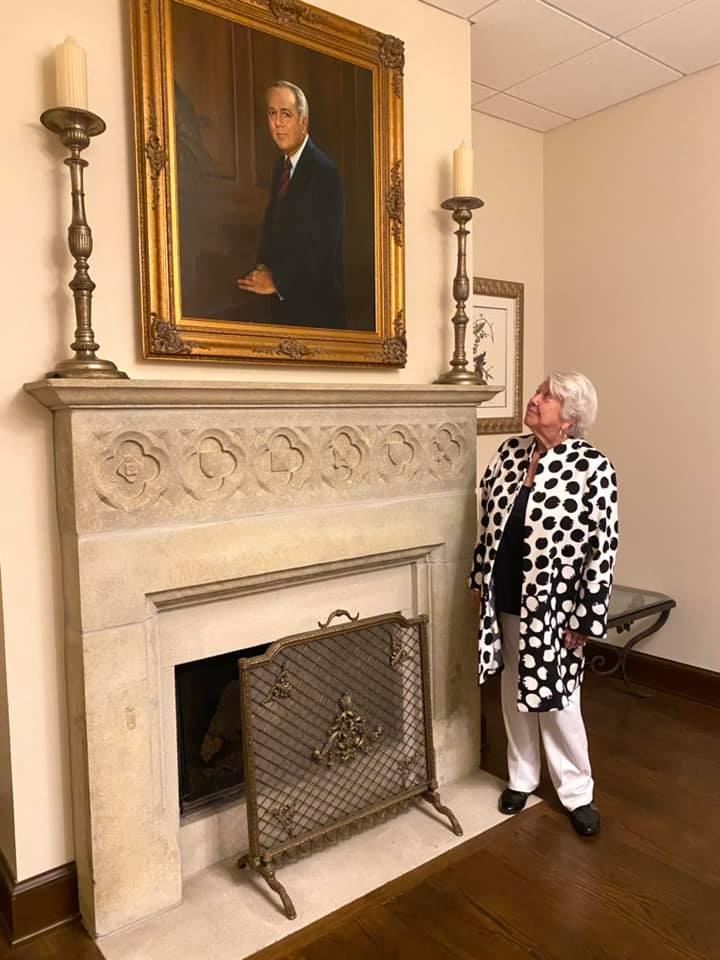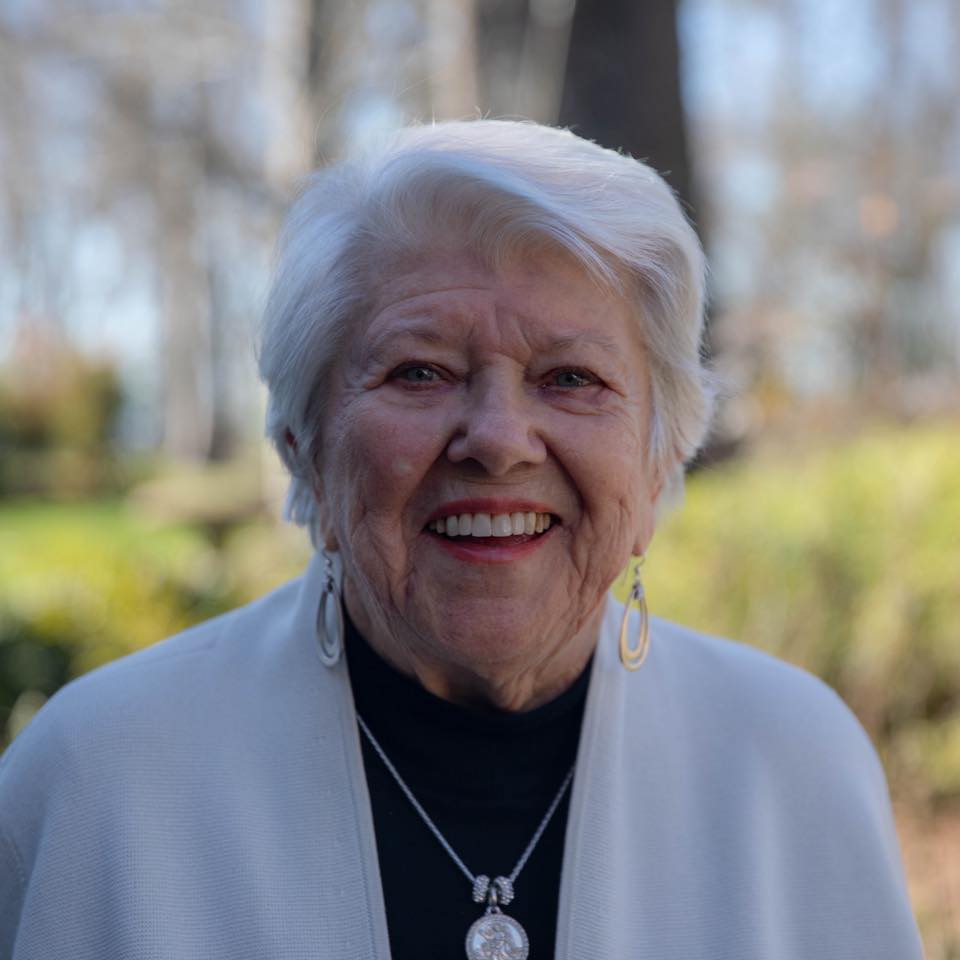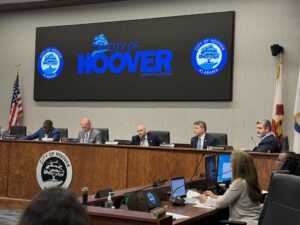Protected or Prisoners: How you can help honor the memory of JoAnn Bashinsky

I’ve been in and around politics for nearly 2 decades in one capacity or another. I’ve learned that the policy changes that really matter and are greatly needed are usually not the ones that get the attention they deserve. We as a nation have a habit of talking about legislation and policymaking in a vacuum. It is as if the only issues that matter are the ones that make headlines or are good for campaign slogans and speeches. Education, taxes, regulatory reform, protecting the 1st and 2nd amendment, or whatever the headline-grabbing topic of the day gets all the attention. Ethics reform here in Alabama is one that (with good reason) has been discussed a lot in recent years. Candidates run on the topics that make for good water cooler or dinner table conversation. The laws related to court-ordered conservatorships and guardianships have probably never made that list for any candidate anywhere. Yet the cone of silence surrounding it doesn’t make it any less important for those who need the system to protect them, their health, and their finances, or those abused by it. Moreover, the lack of attention lets fraud and abuse run rampant throughout the system, and federal and legal experts studying the situation predict it will only worsen as more of our population ages. Let’s face it; we’re all guilty of perpetuating the problem of ignoring the people and issues that should be a no brainer to fix and protect. Now is as good of a time as any to change that. This is the 8th part of a series meant to bring attention to this policy issue, but I want to circle back to the beginning before I get into it. For those who have not heard, it is with great sadness that I share that last week, Joann Bashinsky (known by many as Mama B or Mrs. B) passed away and was laid to rest. Mrs. B was the woman whose courage and kindness in fighting her court-ordered conservatorship was detailed in several of the first written editorials of this series and discussed on many of my frequent radio appearances while hosting shows throughout the state. I often described her as “fiery,” and that’s what she was. When she found herself in a court-ordered conservatorship, she had many tools that not everyone else in the same situation are afforded. First, she had the will and courage to fight it. Most have either but not both. In the audio recordings she made that were a part of my first story in this series, she questioned the assumptions being made about her and her health, and she stood her ground. She had the wherewithal to know she couldn’t go at it alone against a system that mainly operates in the dark. She told her story to anyone who would listen, and she gave several media interviews to get her story heard. In the other cases I’ve investigated or am currently investigating, family members or lawyers who speak to me do so confidentially, off the record, or in the background out of fear that direct media coverage naming the parties involved will upset either or both the court-ordered conservator or the judge assigned to the case. Their fears are not necessarily unreasonable. Based on my research and the work of advocacy groups who shine a light on this subject, the issue of retribution is commonplace. A frequently cited act of retribution for those who speak out or fight back against the system is increased prescription dosages or new drugs added to a ward’s medication routine. Sometimes these medicines are meant to leave the individual confused, weak, or sleepy. This is exactly the type of situation that aides the case against them and contributes to the proof that an individual cannot care for themselves. The second thing that can and too frequently happens to those objecting to their cases is isolation. Wards are kept from their loved ones especially if those loved ones are objecting to the courts actions. These are a powerful method of silencing wards and their families. Unlike Mrs. B, and in the only other public case I’ve ever heard of in the mainstream media, Britney Spears, the majority of those under court-ordered conservatorships find themselves facing an uphill battle to win back their rights with no media coverage whatsoever. I’ve spoken to lawmakers on every level from city, county, state, and federal, who had no idea how the system in its current form exists or how it works. This is a fact that is chilling given the tremendous amount of power those involved, from judges to conservators, guardian ad litems, and others within it, have. Though there have recently been several documentaries, including an episode of Dirty Money on Netflix, the overwhelming majority of seniors and their families don’t get to detail the often shocking stories of families torn apart, exorbitant legal fees, and other conditions most would find distressing. One of the biggest challenges to the publication of these stories is that few people are willing, and even fewer are able, to succinctly share their stories. Most cases involve long and arduous tales of family dysfunction, sibling in-fighting, a lot of he-said-she-said, and contradicting stories that go in circles and are time-consuming to unravel. These hard-to-follow stories and oftentimes too wild to be true stories are facts that predators within the system take advantage of. Courts and court-ordered appointees claim they’re “protecting” the wards even when said ward has family that can and should be their protectors. As I stated above, Mrs. B’s case was different in that she was willing and able to tell her story to anyone who would listen. I watched from afar after my series began, and I moved on to other cases as story after story came out on Mrs. B, knowing she was making a difference with each one. She was adamant that what happened to her was wrong—an opinion upheld by the Alabama State Supreme Court. The
Beloved philanthropist Joann Bashinsky passes away

Alabama philanthropist Joann Bashinsky passed away Monday. The heiress to the Golden Flake fortune was 89 years old. Bashinsky, known to many as “Mama B”, was a beloved giver to the community, and even just recently established a new scholarship fund at Miles College. According to the Birmingham Times, the $168,000 scholarship will provide three four-year scholarships to students who don’t have the financial means to attend college. She’s also been a supporter of causes such as Big Oak Ranch. However, Mrs. Bashinsky has been in headlines recently for a legal battle against the Jefferson County probate system. The probate court took control of her assets and affairs after probate court judge Alan King decided she needed a court-appointed guardian for her estate. The Alabama Supreme Court recently ruled in favor of Bashinsky, freeing her from the court-ordered contested conservatorship. Landon Ash, Bashinsky’s grandson released a statement about his grandmother’s passing. “It is with great sadness that I announce the passing of my grandmother, Joann Bashinsky yesterday, January 3, 2021. She was best known as Mama B or Mrs. B, a nickname she was given as her legend grew for her generosity through her philanthropic work throughout the state of Alabama,” he stated. “My grandmother was a champion for those in need for decades and her passing will be felt by countless people whose lives were touched by her kindness and incredible compassion for humanity. Most of all, this loss will be felt by my family and me. Nonny was my champion as well, and I loved her dearly for the guidance and direction she gave me throughout my life. While Mrs. B was in excellent health, both physically and mentally, for someone 89 years old, she was brought to the hospital Saturday and passed away there yesterday from complications of a heart attack.” In regards to the recent court battle, Ash commented, “Mrs. B found herself under unfortunate circumstances as she spent the past 18 months battling a court-appointed guardianship that continued up until the moment of her passing. She said she was going to ‘fight them till the bitter end’ and that is exactly what she did. Her compassion for those who find themselves in similar circumstances will be felt long after her passing and her work as an advocate for them is far from over.” “Words can’t describe my sorrow for my grandmother’s passing, though I take comfort in knowing she was one of Alabama’s finest women to ever live and that she is now with the rest of her family in heaven, he concluded. “I feel blessed to have the solemn duty to carry on her legacy and continued service to others as she taught me to do so well.” Miles College President Bobbie Knight stated, “The Miles College community is deeply saddened and mourns the loss of Mrs. Joann Bashinsky. Mrs. Bashinsky and I grew close over the past few months after she established an endowed scholarship fund at Miles College. It was during this time I learned she believed that finances should not be a barrier to any student seeking higher education. Mrs. Bashinsky exemplified a passion for improving young people’s lives in our community, and her legacy will live here through the students she has touched.” The family asks that contributions be made out to Big Oak Ranch and Miles College in lieu of flowers.
Protected or Prisoner Part 7: Can the Britney Spears case be the tipping point for change within a system rife with abuse?

Policy changes and pop stars – two topics that aren’t frequently discussed together. With the growing spotlight on Britney Spear’s contested conservatorship, that is changing. Many in our nation are getting a first glimpse at a broken system that has ruined lives, drained bank accounts, and destroyed families across the nation. Don’t get me wrong; even Britney will tell you: there’s a time and a place for the court to examine all evidence, hear all sides and make well-informed judgments on the appointment of a trusted and qualified conservator to protect those who cannot protect themselves. It’s been said Britney herself has agreed that her own conservatorship was initially needed. But her lawyer is claiming the situation in her case and, all too often in our own communities, the people who the court claims they are trying to protect actually find themselves prisoners. With Spears’ birthday this week and recent court arguments coming to light, we can all hope there is a tipping point coming. Not only a time for a change in Britney Spears’ case but also a time for state and federal lawmakers to reexamine and fix the problems that have repeatedly been acknowledged by families, national advocates, the Bar Association, and even the Government Accountability Office. The #FreeBritney movement has taken hold and captured the attention of the nation and the world, and my hope is that the same people watching the case unfold come to see the bigger issue – that this is happening in cities and counties in each and every one of their backyards. Multiple petitions to release Britney Spears from her conservatorship have gained the support of hundreds of thousands of people. The Twitter hashtag #FreeBrittney brings up countless tweets in many languages. With Britney’s 39th birthday on Dec. 2, the timeline is currently flooded with warm wishes and messages that include hopes that she will be freed from her conservatorship. Articles can be found in nearly every media outlet across the web. From People, Page 6, and Vanity Fair to more traditional news outlets like CNN, ABC News, and NBC. It seems every outlet is detailing her case. A case that began in 2008 with a temporary order placing Britney under her father James Spears’ control during a mental health crisis is now on year 12, with no discernable end in sight. As Alabama Today reported previously in our second in this series, “The American Bar Association published a study in 2017 on the Restoration of Rights in Adult Guardianship that found, “an unknown number of adults languish under guardianship” when they no longer need it, or never did. The authors wrote that “guardianship is generally permanent, leaving no way out—‘until death do us part.’ ” Earlier this week NPR did a story on conservatorships based on Britney’s case noting that a DOJ study found that there are an estimated 1.3 million people who are involved in conservatorship cases in the U.S. They play the tearful audio of the only time Britney detailed her feelings on her conservatorship publicly. She compared it to a prison sentence but said even then you know when you’re going to get out. She went on to say it was like groundhog day. It was widely reported that during a November hearing, Brittney’s attorney told the court, “My client has informed me that she is afraid of her father.” Going on to say, “She will not perform again if her father is in charge of her career.” ABC News Reports detail how Britney is not only not getting a say in choices that affect her life; her estranged father isn’t even informing her of major decisions and changes that impact her. It is unconscionable that a system designed to protect the vulnerable from being victims is making so many feel victimized and taking away their rights and their voices. The system hasn’t spared us in Alabama or even Jefferson County, AL. either. We’ve had our own share of “egregious” violations of civil rights as well as a lack of transparency and accountability. In the case that spurred months of investigative journalism and this series by Alabama Today, that of Joann Bashinsky (aka Mrs. B), the Alabama Supreme Court issued a scathing rebuke of Judge Alan King’s actions. Actions that others say are commonplace in courtrooms around the state. Emergency orders that went on for long periods of time and wards, or would be wards, left without representation or their voices heard. As reported in the Washington Post the in the case before the Alabama supreme court, “Justices said Bashinsky’s basic due-process rights were egregiously violated when the probate court made the emergency decision without giving her time to obtain counsel after her lawyers were disqualified. The permanent petition remains pending before the court. Joann Bashinsky is the widow of Sloan Y. Bashinsky, Sr. who owned the majority stock in Golden Enterprises, Inc., and who was the founder, chairman, and chief executive officer of Golden Flake Foods. Her personal estate is estimated to be worth $80 million, and her entire estate was valued at $218 million. Is the Bashinsky case unique? No. How many more are like it? We don’t know, but we’re trying to find out. We have heard from others that Judge King was known to put wards under the supervision of his handpicked court-ordered conservators, even when family members were willing and able to fulfill the role. We don’t know how many though. As the Government Accountability Office and other watchdog groups have noted, data on contested conservatorship and/or guardianship cases is mostly unknown. I asked the Jefferson County probate court first in a series of emails and then in an official public record request, a series of questions about how many cases have been processed here in the last several years. My request was first dated June 15, 2020. As of December 7, 2020, I have no answers. The probate office, in the first 48-hours, did provide a litany of excuses for not providing the records. First, they stated they needed
Protected or Prisoners Part 6: Meet John P. McKleroy the man behind the Joann Bashinsky contested conservatorship

If you’ve been following along, you know that we’re learning together about the dysfunction, potential corruption, and madness involved in Alabama’s conservatorship and guardianship system. One of the missing components in my coverage to date has been addressing a frequent question, “How does this happen to someone?” Today, let’s explore that. The story that sparked this series was that of longtime philanthropist and heir to the Golden Flake company, Joann Bashinsky (aka Mrs. B or Mama B). In her case, Mrs. B’s forced and contested conservatorship began after firing two longtime employees John P. McKleroy and Patty Townsend, who seemingly “betrayed her.” The day they were fired, after months of insubordination and actions that went against the express wishes and interest of Mrs. B, the two petitioned the court for an “emergency order.” Today, we’ll look at McKleroy’s role in this. McKleroy and Towsend filed an emergency order. What did they have to gain? Access and control of tens of millions once they took away Mrs. B’s voice and votes on the boards of her company and foundations. What did they have to lose? Not much or so they would have thought, if not for Mrs. B aggressively fighting their efforts and telling her story publicly. What kind of man would do this? Well, the same man who would plead guilty to third-degree domestic violence and harassment, as McKleroy did. The police report detailing his abuse describes his violent assault saying, “while in a domestic altercation,” McKleroy did, “push, choke, and slap the victim.” According to a letter from his doctor and the court order, he went on to get a minimum of one year and three months of professional treatment to “address the psychological issues related to his episode of loss of control.” The clinical and forensic psychologist at the time stated that “he probably would not have sought treatment without legal pressure.” Mrs. B was never made aware of McKleroy’s violent altercation with a member of his immediate family, (we are not identifying out of respect for the victim), the arrest, his need for therapy (including a court-ordered additional six months beyond his plea agreement), or his two years of probation. When I spoke to Mrs. B about this, she was disappointed. I asked her if she felt he should have told her about all of this, and she said, “Absolutely!” Bashinsky trusted McKleroy so explicitly before this betrayal, that when drawing up an update to her will, he advised her that her late husband, the founder of Golden Flake Sloan Bashinsky, had included him in his final will. He indicated he was a beneficiary, not just the executor. Mrs. B wanted to honor her husband’s wishes. She allowed him to include himself in her will at what he told her was the same amount as in Mr. Bashinsky’s will. What McKleroy wrote in her will, on her behalf, was that “My good friend John McKleroy shall receive,” and it ended up being 2% of her entire estate. After firing McKleroy and Townsend, Mrs. B told Alabama Today that an examination of her late husband’s records indicated that Mckleroy had not been honest with her about that. No record of those wishes existed. The sad irony is that a significant component of their emergency request was a concern that Mrs. B wouldn’t be able to fulfill the bequests of her will. McKleroy has made millions during his time with Golden Flake and the Bashinsky’s. Reading the timeline presented in court documents, the only logical assumption is that McKleroy had been planning this for some time. He also had crafted a strong narrative in defense of his actions. Initial reports by the court-ordered Guardian ad-litem and social worker demonstrated facts contrary to what the filings by McKleroy claim. These include false accusations about Mrs. B’s cognitive abilities and her understanding of her financial investments. The filing falsely claims that Mrs. B needed to be “coached” on her requests to move money out of Level Four financial advisors, but she was able to explain the request and the justification clearly to the two court-ordered neutral parties. According to his report to the court, Robert Squire Gwin told him just days after the two employees filed their motion, “Mrs. B[ashinsky] voiced her strong opinion that she was ‘totally disappointed and disgusted with John McKleroy and Patty Townsend’ since they both have been long time advisors over many years. She stated that she ‘felt betrayed by these former employees and advisors.’” The court filing also stated that “Ms. Bashinsky was able to identify relevant dates and events in her life to Gwin and Sellers. Both the court-ordered guardian-ad-litem and social worker submitted statements saying that Mrs. B was lucid, able to talk. They indicated she was able to describe in detail the transfer of funds that is at the heart of this case. You see, one of the most significant components of their emergency order and one of the reasons they were fired is because the financial advisors at a Level 4 Dallas based company refused to comply with multiple requests by Mrs. B to diversify her account. Orders that the two former employees attest she didn’t understand or ask for herself. McKleroy claimed in court that an emergency existed. The state Supreme Court said in their decision dismissing the order for conservatorship that no such emergency was indicated. On Friday, July 24, 2020 Mrs. B hosted a board meeting, that included both McKleroy & Townsend as the other two board members, during which she directly addressed the violent criminal charges that McKleroy pled guilty to. She told me after the meeting, “I find it atrocious what Mr. McKleroy did. I feel strongly that he had a duty to disclose his actions to the board at the time it happened. At this point, it doesn’t surprise me that Patty (Townsend) isn’t disturbed by the news, but I don’t feel that this particular member’s actions are a good representation of my family’s boards. My
Protected or Prisoner Part 5: Game changer! Alabama Supreme Court admonishes Judge Alan King in Joann Bashinsky case

While the war will wage on for families throughout Jefferson County and the state of Alabama seeking to regain their independence from a broken conservatorship system, the good guys won an important battle today.


